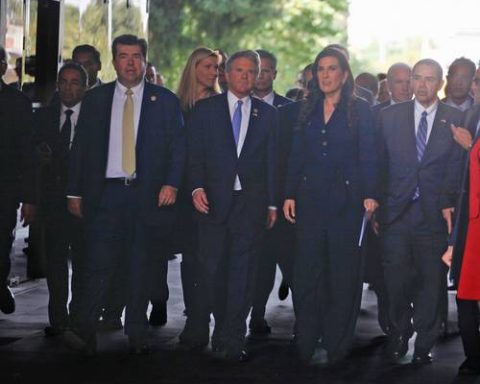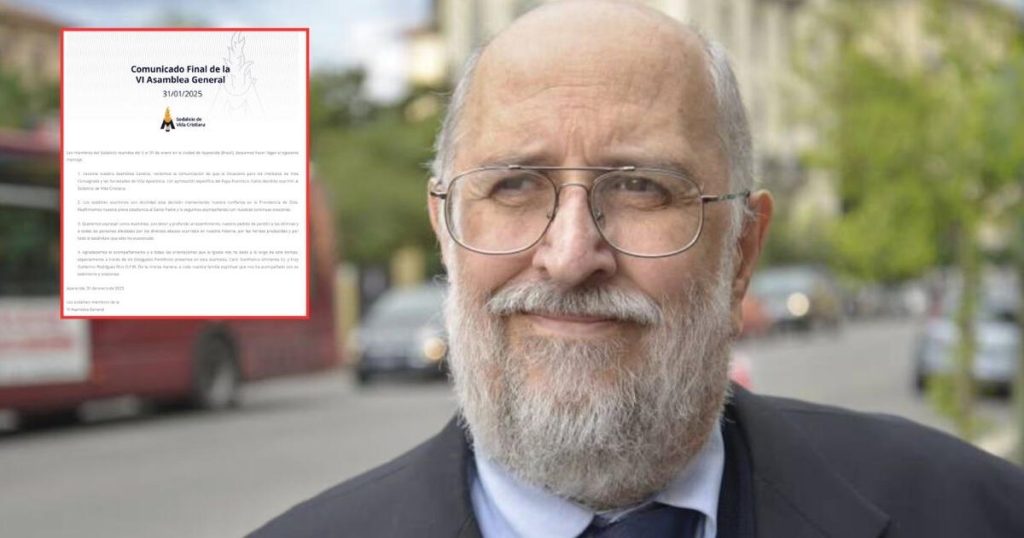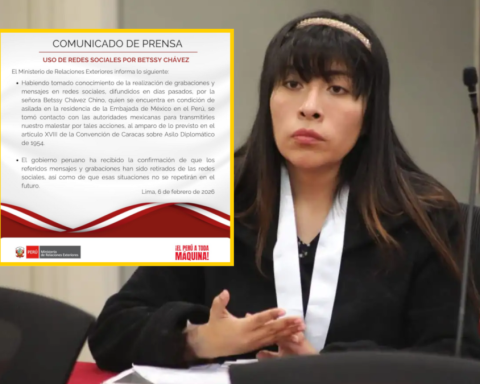
2023 was the hottest year since there are records, Until 2024 broke the record And the 1.5 ° C threshold of global warming was overcome for the first time. And it will not be the last time a new maximum is reached. Applying current emission reduction policies, an increase in 3.1 ° C with respect to the preindustrial era for 2100.
But the situation could even be worse if countries do not launch the necessary measures. Without going any further, the current president of the United States, Donald Trump, has announced the departure of the Paris Agreement and its plans to extract more fossil resources.
The consequences of not reducing enough emissions are already devastating, And they will be more and more. We risk reach Climate non -return points whose consequences would be irreversible.
COP29: Financing and Carbon Markets
Today, the space capable of gathering representatives of the 8 billion inhabitants of the world to reverse the most devastating effects of global warming is the United Nations Conference on Climate Change (COP). Even so, after almost 30 years of Cop still There are resistances and lack of will to address the main cause of the problem: the increase year after year of burning fossil fuels.
The last of these summits (COP29), held in November in Baku (Azerbaijan), closed with a minimum commitment to mobilize at least 300,000 million dollars annually by 2035 to finance the adaptation of countries to development to climate change and compensate them for their consequences. However, this figure represents less than a quarter Of the 1.3 billion dollars annually that these countries need.
The other prominent aspect of COP29 was the resolution of the pending provisions of the Paris Agreement related to carbon markets. These mechanisms allow companies and governments Buy credits to compensate for your broadcasts through initiatives such as the establishment of plantations in areas without prior forest coverage, support for energy transition projects or the still very poorly developed capture and industrial storage of carbon dioxide (CO₂).
However, until now these mechanisms have proven not to contribute to the reduction of emissions and be A profitable business for private capital. Through the purchase of carbon credits, large emitters are allowed to continue contaminating while discourages the adoption of ambitious climatic objectives. Problems related to the Lack of supervision, transparency and methodological integrity.
Thus, for example, cases of double emission count and there is uncertainty about the guarantees so that The captured co₂ is warehouse in the long term. In addition, there is evidence of the Rights violation of local communities in afforestation projects.
Towards “the end of fossil fuels”?
The lack of public ambition in climate financing, added to the growing role given to private capital in mitigation aspects, joined in Baku with the absence of regulatory agreements to give continuity to the commitment of COP28 to move towards “The end of fossil fuels”.
If 83 % of CO₂ anthropogenic emissions come from the burning of these fuelsand the most effective way to mitigate global warming is to stop its extraction and use, why in 29 years the main cause of the problem has not been directly addressed?
The answer is in the enormous pressure exerted by actors linked to the fossil industry. These refuse to leave a very profitable business that has generated them 2.8 billion dollars daily during the last 50 years.
More than 1,700 lobists Linked to the industry participated in COP29, thus surpassing the sum of delegates of the 10 nations most vulnerable to climate change.
Representatives of countries such as Saudi Arabia stood out for hinder Agreements focused on limiting fossil fuel extraction.
The same president of Azerbaijan described the fossil resources of his country as a “Gift of God” in the inaugural session of the summit, while it was published that the country plans Increase gas production next decade.
To all this is now added Donald Trump’s promise to unleash oil and gas extraction.
Towards an effective climatic solution
The search for global solutions to the climatic crisis must go hand in hand with multilateralism. International agreements under the United Nations umbrella such as the Montreal protocol and the consequent recovery of the ozone layer They show that overcoming collective challenges is possible. However, for spaces such as COP not failing, it is essential to ensure that agreements are guided by scientific evidence, and not by corporate interests.
According to the International Energy Agencywe must avoid new investments in gas, oil or coal extraction projects, and close a significant part of operational extraction projects.
The first step must be to eliminate the large subsidies granted to the fossil industry, which ascend to 70,000 million dollars annually only in G20 countries. This measure would substantially boost the energy transition, since, without economic support, numerous extraction projects will become unfeasible, accelerating its closure. At the same time, so that governments act more firmly and avoid the fear of millionaire compensation, it is also fundamental Eliminate contractual clauses that protect foreign investors in the face of the early cancellation of contracts.
In order for the transition not to perpetuate the inequality between countries, it is essential that decarbonization be guided by principles of equity, environmental justice and solidarity. This implies prioritizing the end of extraction in countries with High transition and potential capacity to support developing countries. Also immediately close projects where They violate human rights and cause serious socio -environmental impacts. Tools like Non -removable conventional oil atlas and the Interactive platform on non -burning fossil fuelsled by the University of Barcelona, they already allow to identify where to prioritize these efforts.
International coordination for the closure of fossil projects can be strengthened through initiatives such as Non -Proliferation Treaty of fossil fuels and the Alliance beyond oil and gas.
On the other hand, the fossil fuel industry can play a key role in leading the transition, taking advantage of its investment capacity and technical experience to reorient its porpholians towards the massive deployment of clean energy. Currently, investing in renewables is not only more profitable What to do it in the fossil sector, but also generates Quality use.
Therefore, the current plan to save the planet can be effective, but collective decisions must be adopted without industry interference and focus on effective measures such as eliminating fossil fuel extraction.
Today there is no plan B, and not acting in a forceful way will lead us to scenarios described, in the words of the United Nations Secretary Antonio Guterres, such as the “Climate hell”. Scenarios that would be catastrophic for the world economy and, even, for those companies and governments that prioritize the benefits of short -term extraction.














